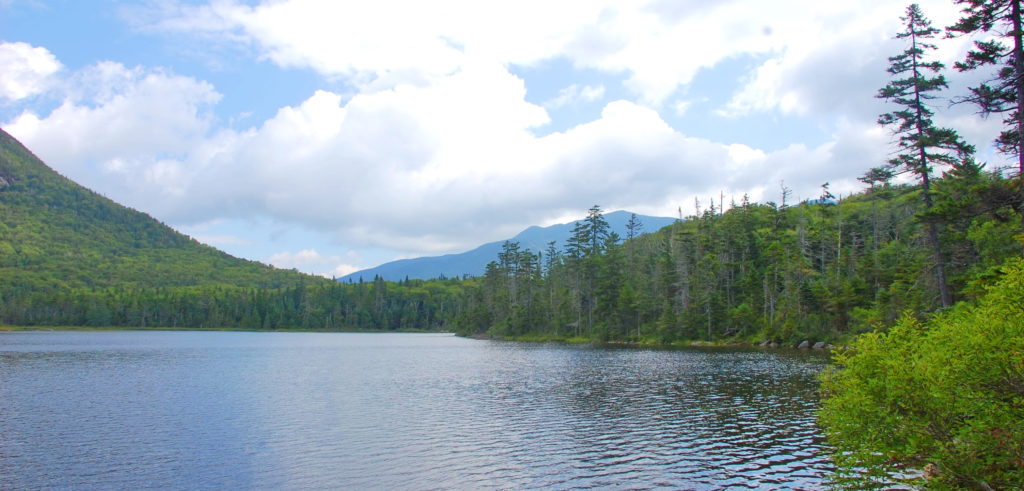NEIWPCC adapts amid coronavirus crisis

The first thing to go was our annual “all-staff” meeting that had been planned for the end of March. By mid-month, it seemed clear that interstate travel was not in the cards.
Just a few days later, as state governors issued work-from-home orders, we postponed what would have been our 31st annual Nonpoint Source Conference for a year, and started canceling training classes for wastewater operators.
We started working from home, finding new ways to collaborate online and over the phone. We canceled the May meeting of our commissioners.
These were difficult decisions. But in the weeks that followed, we found new ways to serve our states and the people of the Northeast.
Moving Ahead
We convened a virtual meeting of state environmental scientists to discuss changes they’re making to spring and summer monitoring work.
We reached out to state officials to discuss ways to keep wastewater operators working and safe during the pandemic.
NEIWPCC Executive Director Susan Sullivan moderated a national webinar on how regulators should work with water and wastewater utilities during the COVID-19 outbreak.
Meetings became phone calls, webinars, and virtual exchanges. Planning for the 2021 Nonpoint Source Conference is already underway. Our all-staff meeting has been rescheduled for November.
View our Current Status page.
Wastewater and Onsite Training
NEIWPCC’s training programs have been hard hit. Instruction is often hands-on, and classes have been canceled or postponed. The training staff is exploring distance learning for some classes.
Meanwhile, states are easing certification requirements and shifting deadlines for operator certification and recertification. In Massachusetts, where NEIWPCC manages certifications, NEIWPCC sent letters and emails to lapsing operators encouraging them to renew by the revised deadline of June 30.
Champlain Relief Grants
On April 14, the Lake Champlain Basin Program decided to offer emergency relief grants to distressed Champlain watershed organizations.
Many LCBP partners that rely on public support face hardship during this period, when the public is absent. Grants will be funded from a pool of about $150 thousand in LCBP program funds that, because of pandemic-related work restrictions, will not be spent for their original purpose.
The LCBP has also compiled a list of online watershed, conservation, and heritage education tools and resources for remote learning. As of April 22, the basin program was planning to provide remote training for its seasonal crew of boat-launch stewards, so that the staff would be ready to start when the launches reopen.
Eel Count and Other Adaptations
The Hudson River National Estuarine Research Reserve (HRNERR) has had to scale back its annual eel count, which usually involves hundreds of volunteers and students.
According to Sarah Mount, a NEIWPCC employee who coordinates the event, this year “only a small number of select nets are being sampled by [New York State] DEC staff and close organizational partners, with additional social distancing safety protocols in place.” There is no student or volunteer participation, but “we will still have some data on eel migration to contribute to our long-running dataset.”
At the Hudson River Estuary Program (HREP), the staff is often able to work from home, though classroom visits are out. Once a week, the staff sends collaborating teachers the latest distance-learning videos and lesson plans.
HREP continues to reach a broader public through Rivernet. A recent issue brought news of spring in the Hudson Valley, including eagle nestings, emerging amphibians, and Earth Week.
Long Island Sound and Beyond
The Long Island Sound Study launched a new website in late March, and announced the latest round of research grants. An April workshop in community based social marketing had to be postponed, and a June Tidal Wetlands Loss workshop has been postponed and will be held online.
LISS submitted three proposed workshops to Restore America’s Estuaries’ October 2020 Summit in Providence last week. The national estuaries group had extended its deadline for proposals to April 17.
Elsewhere in the region,
- NEIWPCC and the Peconic Estuary Partnership are accepting proposals to complete engineering designs and permitting for a habitat restoration project at Meetinghouse Creek in Riverhead, NY. Due to the COVID-19 outbreak, we extended the deadline for this request until April 30, 2020.
- The public-participation phase of writing the Narragansett Bay Estuary Program’s Comprehensive Conservation and Management Plan has gone online with virtual meetings. Its Blackstone Needs Assessment project has also switched to online meetings.
LCBP, PEP, and NBEP are program partners of NEIWPCC.
iWR • April 2020